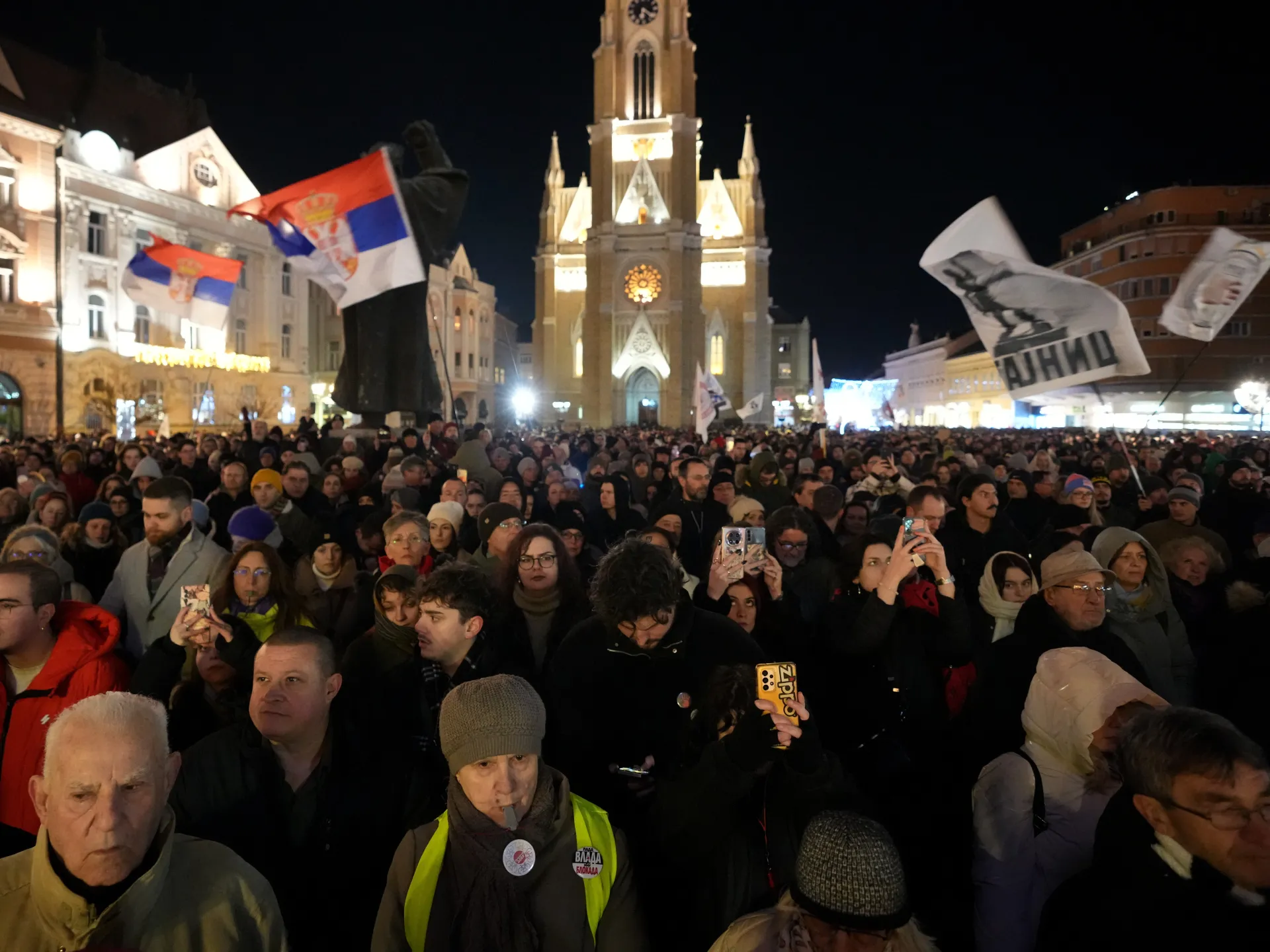Thousands rally in Serbia as students continue fight against corruption | Corruption News
University students have proposed banning corrupt officials from politics and investigating their wealth.
Published On 18 Jan 2026
Thousands of people have rallied in the Serbian city of Novi Sad, as university students who have led more than a year of mass demonstrations pledged to continue fighting against endemic corruption during the tenure of right-wing nationalist President Aleksandar Vucic.
Protesters, chanting “thieves”, accused the government of rampant corruption. University students told the crowd on Saturday that they had drawn up a plan on how to rid Serbia of corruption and restore the rule of law. They proposed banning corrupt officials from politics and investigating their wealth as first steps for a post-Vucic government.
Recommended Stories
list of 3 itemsend of list
The protest was dubbed “What victory will mean”. Last month, students said they had collected about 400,000 signatures in support of their election bid.
The next protest rally is planned for January 27 in the Serbian capital of Belgrade, organisers said.
Regular student-led protests have gripped Serbia since a November 2024 train station disaster in the northern city killed 16 people, becoming a symbol of entrenched corruption.
Thirteen people, including former Construction Minister Goran Vesic, were charged in a criminal case over the collapse. The Novi Sad High Court dropped the charges against Vesic last month, citing a lack of evidence.
A separate anticorruption inquiry continues alongside a European Union-backed investigation into the possible misuse of EU funds in the project.
Tens of thousands of people marked the first anniversary of the train station roof collapse in Novi Sad in November, observing 16 minutes of silence for the 16 victims of the tragedy.
The protests over the station’s collapse have led to the resignation of the prime minister, the fall of his government and the formation of a new one. But Vucic has remained defiantly in office.
Vucic has denied accusations of corruption and regularly labelled demonstrators as foreign-funded coup plotters, while members of his SNS party pushed conspiracy theories, claiming that the train station roof collapse may have been an orchestrated attack.
Vucic has refused to schedule an immediate early election that students have demanded. Hundreds of people have been detained, or reported losing their jobs or facing pressure for opposing the government.
Vucic came to power more than a decade ago, promising to take Serbia into the EU. But he has since strengthened ties with Russia and China, while facing accusations of curbing democratic freedoms in Serbia and allowing corruption and organised crime to flourish.
The student movement has garnered big support among Serbs who are largely disillusioned with mainstream politicians. Vucic has accused the students of working under unspecified Western orders to “destroy Serbia”.
